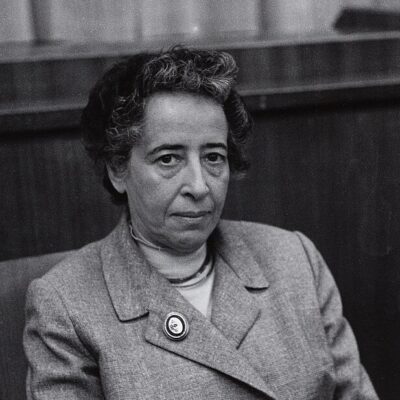Self and System: The Case for Adaptive Leadership in Advancing Global Jewish Interconnectivity
 [This essay is from The Peoplehood Papers, volume 17 – Engaging Millennials with Jewish Peoplehood What Does It Take? – published by the Center for Jewish Peoplehood Education.]
[This essay is from The Peoplehood Papers, volume 17 – Engaging Millennials with Jewish Peoplehood What Does It Take? – published by the Center for Jewish Peoplehood Education.]
By Sarah Mali
This summer, The Jewish Agency’s Global Leadership Institute (GLI) is launching the Adaptive Leadership Lab which brings together young professionals from around the world to make progress on local and global Jewish challenges in an adaptive learning environment.
At the GLI, we equip young adults with the mindset and skillset to exercise leadership in increasingly unstable, complex and interconnected environments, in service to the Jewish people. Since its establishment in 2013, the GLI has employed the model of Adaptive Leadership as its primary training approach. In this short piece we will briefly introduce Adaptive Leadership and its relevance to developing global interconnectivity among young Jewish adults.[1]
Adaptive Leadership is a practical leadership model pioneered at the Harvard Kennedy School by Ronald Heifetz, Marty Linsky and their colleagues. The theory posits that leadership and authority are two separate concepts that we often conflate. People in positions of authority are those we usually call ‘leaders,’ because they provide us with direction and preserve order. But leadership is about behavior, what we do to create change – and can be performed with or without authority. Those who are engaged in the work of leadership look to identify adaptive challenges, challenges for which there is no ready-made technical answer, which cannot be solved by an expert and must be solved by the stakeholders who are experiencing the challenge themselves. Adaptive change is uncomfortable because it challenges our most ingrained beliefs and suggests that deeply held values are losing relevance. Those who exercise adaptive leadership are engaged in the ‘practice of mobilizing people to tackle tough challenges and thrive’.[2]
At the GLI we see the value of adaptive leadership in the context of building a stronger Jewish People. Here are four reasons why:
1. Adaptive Leadership Develops a Stakeholder Mindset:
The model advances a distributive approach to responsibility. When it comes to adaptive challenges, we are all complicit in the messes in which we find ourselves and as such, we, collectively, are the only ones who can make progress on these challenges. Adaptive Leadership trains participants to re-pattern themselves to be part of an open playing ground of the Jewish People; where making change is all of our responsibility.
2. Adaptive Leadership Democratizes Leadership:
Since leadership is behavioral, it follows that each of us has the capacity to mobilize people to make progress on the issues we face. The adaptive learning experience does not ‘seduce’ participants by naming them as ready-made ‘leaders;’ but calls upon them to exercise their leadership muscles by facing tough issues, flagging power dynamics that are off-balance, and sharing the workload collaboratively. Everybody is able to do this. By democratizing leadership the model suggests powerfully that the adaptive challenges faced by the Jewish world cannot be resolved exclusively by people in positions of formal power and influence.
3. Adaptive Leadership Transforms the Group Learning Experience:
When leadership is defined as observable behavior, the classroom becomes alive with the actions of those exercising leadership and those avoiding the work with which leadership compels them to engage. Class time is neither a simulation nor an intellectual exercise. It is a visceral, below-the-neck experience – a laboratory – which provides a means for participants to learn leadership through their own practice in the here-and-now. The group laboratory experience with demographic diversity / global composition allows the group to function as a mini-Jewish People laboratory. Together, diverse challenges and opportunities are surfaced and grappled with, as the group undergoes an intense discovery process of the power and productivity of its inter-connectedness.
4. Adaptive Leadership pushes us beyond our Independent Selves to Inter-dependence:
Core to the adaptive theory is the adult development perspective that postulates that we have the potential to develop increasingly complex levels of understanding of ourselves and the world in which we live, to broaden our behavioral repertoire, and to widen our inclusion of those who are different from us. Adaptive Leadership challenges participants to let go of seeing themselves as islands of knowledge and culture but rather as interconnected pieces of a complex system. It builds a more systemic awareness that incorporates difference and the possibility of holding opposing and oftentimes surprising and enriching viewpoints. Participants learn to see themselves as a part of a Jewish system; part of the Jewish People.
Adaptive Leadership is rooted in an understanding that each of us can exercise leadership, that our selves are interconnected parts of a wider system and, as such, we all have a stake in each other’s growth and in the kinds of Jewish world we would like to cultivate.
[1] GLI programs train young adults aged 18-35.
[2] Ronald Heifetz EtAl, (2009). The Practice of Adaptive Leadership, pg.14.
Sarah Mali is the Founding Director of the Global Leadership Institute. For more information about the GLI and the Adaptive Leadership Lab (A.L.L.) please contact sarahm@jafi.org

 Add EJP on Google
Add EJP on Google









